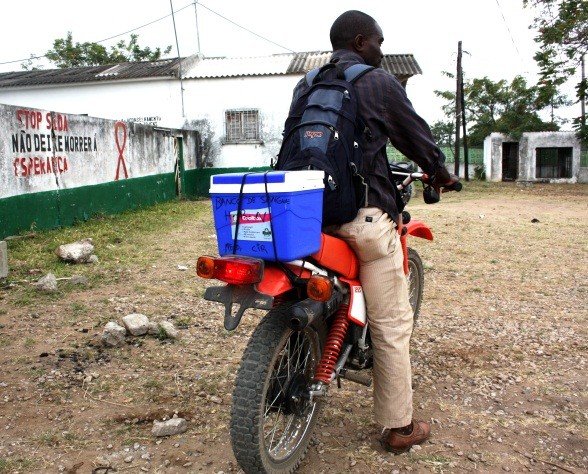
Nov. 2014—As Mozambique grapples with severely poor health services, a change in how funding is disbursed may also substantially change the quality of care.
District health teams are ultimately responsible for delivering health services to the country’s population. However, because priorities are planned, managed and financed at the provincial and central levels, districts historically have had no control over resources. As a result, there are often delays or failures to disburse funds to support essential services.
In 2013, USAID launched an initiative to provide direct funding to districts, while also training the district health teams to plan for, use and manage the funds. The initiative is providing sub-grants to all 36 districts in the Sofala, Manica and Tete provinces. Districts are required to develop plans for using the funds, focusing on priorities such as transport of medical supplies and laboratory samples for processing, training of staff, community health programs, data analysis, and integrated supervision and technical assistance visits to health facilities.
The funds are disbursed in tranches, based on district achievement of set milestones. The funding is delivered directly to where it is most needed, while also strengthening the health teams’ capacity to manage resources. The ultimate goal of the initiative is to strengthen the Mozambican health system so that all districts are able to locally manage health programs, including direct funding from donors.
Nine months since the launch of the initiative, Nhamatanda district in Sofala province, one of the grant recipients, has improved. According to the district chief medical officer, Dr. Prescila Felimone, the initiative has helped boost the pace of the district's activities as well as improve the staffs’ management skills.
“The district sub-agreements brought about a positive impact as we no longer depend on the provincial level to transport drugs,” says Felimone. “Collection of laboratory samples and delivery of results to peripheral health centers is prompt. Patients now get their test results within four days while before it took more than one week to deliver results.”
The district has also reduced the time it takes to deliver drugs to all health facilities.
“We are a cohesive and motivated team because we know that we have resources locally to plan and implement activities,” adds Felimone. “Now we can conduct supervision and technical assistance visits more timely.”
The USAID initiative is part of the Clinical HIV/AIDS Services Strengthening project, which runs from January 2011 to October 2015 and is funded by the President's Emergency Plan for AIDS Relief. The project aims to improve the quality and access to HIV/AIDS and related primary health care services within strengthened health systems.
LINKS
Follow @USAIDMozambique, on Facebook, on Flickr, on YouTube







Comment
Make a general inquiry or suggest an improvement.